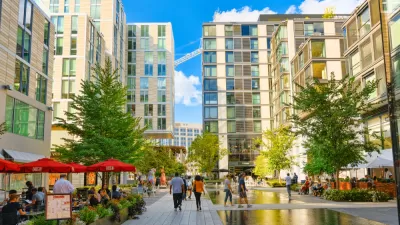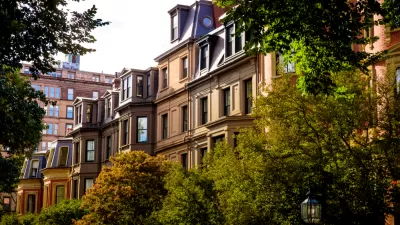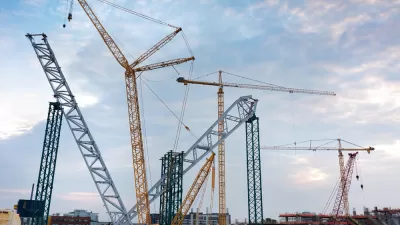The D.C. Zoning Commission will be the first to consider staff recommendations for adjustments to District's inclusionary zoning policy.
Aimee Custis reports: "On January 28, the DC Zoning Commission will look at tweaking inclusionary zoning, one of the main policy tools the District uses to generate new affordable housing units."
Custis notes that the Washington, D.C.'s existing inclusionary zoning program, adopted in 2006 and finalized in 2009, requires 8-10 percent of condos and apartments built in D.C. are affordable to people making less than 50-80 percent of the area median income (AMI). The problem in need of a solution in 2016, notes Custis, is that prices are too high for inclusionary zoning to build enough housing supply to meet all the below-market demand.
Here, Custis explains how inclusionary zoning is playing out in D.C.: "Today, 8 out of 10 DC inclusionary zoning units are produced at 80% AMI. Compared to successful programs in other cities, thats's [sic] too high. An Urban Institute report noted that other with similar programs set affordability levels for rental housing between 55 and 70% AMI."
In response, the Washington, D.C. Office of Planning has proposed a number of changes to the District's inclusionary zoning policy, including changes to the required percentage of affordable units, density bonuses, and qualifying AMI.
FULL STORY: DC's inclusionary zoning could start serving poorer households

Alabama: Trump Terminates Settlements for Black Communities Harmed By Raw Sewage
Trump deemed the landmark civil rights agreement “illegal DEI and environmental justice policy.”

Planetizen Federal Action Tracker
A weekly monitor of how Trump’s orders and actions are impacting planners and planning in America.

The 120 Year Old Tiny Home Villages That Sheltered San Francisco’s Earthquake Refugees
More than a century ago, San Francisco mobilized to house thousands of residents displaced by the 1906 earthquake. Could their strategy offer a model for the present?

Ken Jennings Launches Transit Web Series
The Jeopardy champ wants you to ride public transit.

BLM To Rescind Public Lands Rule
The change will downgrade conservation, once again putting federal land at risk for mining and other extractive uses.

Indy Neighborhood Group Builds Temporary Multi-Use Path
Community members, aided in part by funding from the city, repurposed a vehicle lane to create a protected bike and pedestrian path for the summer season.
Urban Design for Planners 1: Software Tools
This six-course series explores essential urban design concepts using open source software and equips planners with the tools they need to participate fully in the urban design process.
Planning for Universal Design
Learn the tools for implementing Universal Design in planning regulations.
Clanton & Associates, Inc.
Jessamine County Fiscal Court
Institute for Housing and Urban Development Studies (IHS)
City of Grandview
Harvard GSD Executive Education
Toledo-Lucas County Plan Commissions
Salt Lake City
NYU Wagner Graduate School of Public Service





























